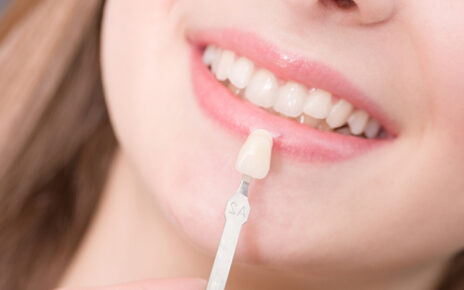Replacing missing teeth can be a daunting decision, especially with so many options available. Two of the most common solutions are traditional dentures and implant supported dentures in Northeast Philadelphia. They both restore your smile, but they function quite differently and cater to varying lifestyles, preferences, and budgets.
To help you make an informed decision, let’s break down the key differences in terms of stability, comfort, oral health benefits, cost, and maintenance. By the end, you’ll have a clearer picture of which option works best for you.
Stability and Functionality
One critical concern with tooth replacement is how stable and functional the option is. Traditional dentures, though widely used, are removable appliances that rest on the gums. They rely on suction, adhesives, or both to stay in place. While reasonably effective, they might shift during eating, speaking, or laughing, leading to discomfort and self-consciousness.
Implant-supported dentures, on the other hand, are securely anchored to dental implants, which are titanium posts surgically inserted into the jawbone. The implants act as artificial tooth roots, providing a solid foundation for the dentures. This makes implant-supported dentures far more stable. With no risk of clicking, slipping, or falling out, they act much like natural teeth, offering greater freedom to enjoy your favorite foods or engage in social activities without worry.
Comfort and Fit
When it comes to comfort, traditional dentures can sometimes fall short. Because they rest on the gums, they may cause irritation, especially if they don’t fit perfectly or if your jaw changes shape over time. Additionally, the fit of traditional dentures can loosen as bone resorption, a natural part of tooth loss, occurs in the jaw.
Implant-supported dentures, on the other hand, don’t rest directly on the gums. Instead, they are firmly supported by implants, which prevents gum irritation and reduces the pressure on soft tissues. They also help preserve the jawbone, minimizing bone loss and preventing the shrinking effect that can alter your facial structure as you age. The result? A more natural and comfortable fit that lasts longer.
Oral Health Benefits
Oral health is another crucial factor in choosing between these two options. Traditional dentures do little to maintain overall oral health. Since they don’t replace tooth roots, they can’t stimulate the jawbone, leading to bone loss over time. This can cause changes in facial structure and put surrounding teeth at risk of loosening.
Implant-supported dentures, however, actively prevent bone loss. By replacing tooth roots with implants, they provide the stimulation that your jawbone needs to remain healthy and strong. They also support your remaining teeth by maintaining the structural integrity of your jaw. Additionally, implant-supported dentures don’t require adhesives, which can sometimes cause oral irritation or lead to infection if not cleaned properly.
Cost Considerations
Cost is often a deciding factor for many patients. Traditional dentures are typically more affordable upfront, with prices depending on materials and customization. However, they may need frequent adjustments, repairs, or replacements due to wear and changes in jaw structure, which can drive up costs over the years.
Implant-supported dentures, while more expensive initially, are often a one-time investment. The implants themselves are designed to last a lifetime with proper care, and the dentures attached to them have a longer lifespan compared to traditional dentures. Over time, the lower maintenance costs may balance out the higher upfront expense, making them a more cost-effective solution in the long run.
Maintenance and Lifestyle Impact
Traditional dentures require daily cleaning and occasional removal to prevent plaque and bacteria buildup. Adhesives may need to be reapplied throughout the day, and special care must be taken during meals to avoid dislodging them. They also need to be soaked overnight, which can feel inconvenient for some.
Implant-supported dentures, on the other hand, are much easier to maintain. They can usually be brushed and cleaned like natural teeth, and there’s no need for adhesives or removal. Their fixed or securely attached design means you can eat, talk, and laugh without worrying about slipping or ongoing maintenance issues, making them a more lifestyle-friendly choice.
Conclusion
Both traditional and implant-supported dentures are effective ways to restore your smile and improve your oral health. By carefully weighing factors like stability, comfort, oral health benefits, cost, and maintenance, you can determine which option aligns best with your goals and lifestyle.
You can consult with your dentist or prosthodontist to explore your options in detail and develop a personalized treatment plan. Whether you choose traditional dentures or implant-supported ones, the most important outcome is a solution that makes you feel confident and comfortable every day.





